“Swimmers,” a film released on Netflix in November 2022, is the true story of two sisters who fled Syria at the start of the war, and made their way to Germany. We watch them cross borders illegally, make connections with Ethiopians and Yemenis also making the difficult journey, and struggle in a refugee camp. They follow their swimming careers diligently, culminating in an Olympic showing in Rio. It is directed by Egyptian-Welsh Sally el Hosmini.
“Swimmers” draws an interesting parallel, in its closing scenes: We are reminded of the contrast between the journey of the Olympic tradition from Greece to Rio Di Janerio in 2016 and the journey of the Syrian refugee athletes from landfall in Lesbos to being able to compete in the 2016 Olympics.
The settings for this film are varied and diverse, with the common narrative thread of water, oceanically salted or chlorinated in a pool. We see the Mardini sisters, Yusra and Sara, live exceedingly normal lives in Damascus as the film begins, with Sara, the elder, showing a clear and loud rebellious streak against the (still inert) mild conservatism of her family and society.
As the film’s title suggests, our two protagonists are swimmers, and really good ones. They compete and train unerringly, with relentless dedication, and you’d be forgiven for mistaking this film’s first few scenes for one of the many athlete biopics in the film world that involve training montages to pop music with a caring mentor coach figure. It helps that this coach character is brought through in their father, Ezzat.
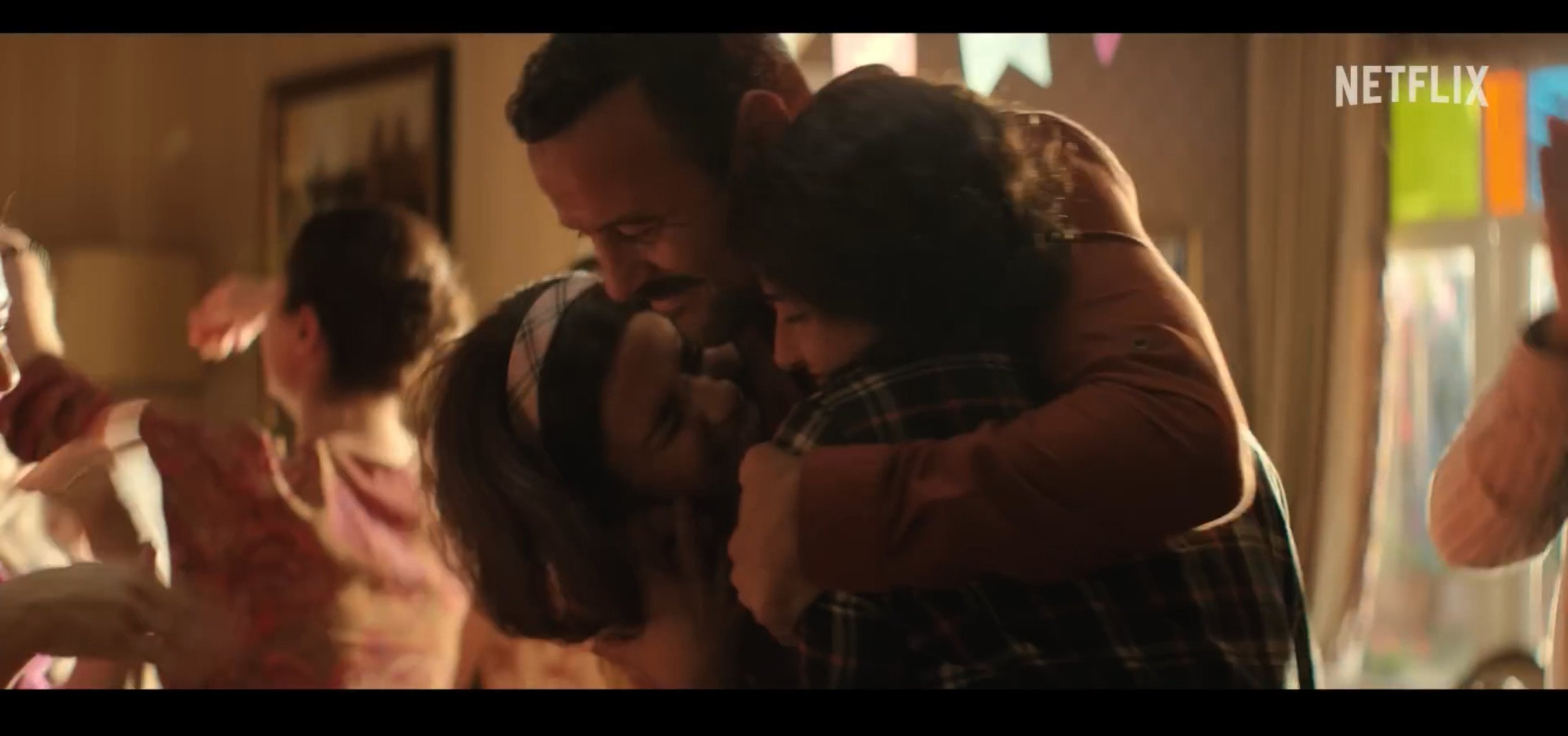
It is one of this film’s many merits is that Ezzat Mardini, the protagonists’ father, is compassionate and loving, generous in equal measure with affection and facilitation for his daughters. This break from stereotypes of masculinity and the Arab cultures is refreshing and realistic, portraying a far more realistic family dynamic of middle-class life outside of the west than most media understandings. A hatred for daughters persists still in fringe elements of many cultures, but it is incumbent upon media, both native and foreign to these cultures, to encourage more progressive projections of them so as not to feed the many racist narratives around them. I will point especially to Donald Trump implying that the mother of a martyred US soldier was “‘not permitted” to speak at the Democratic National convention in 2016.
The images of daily life as it would be in most urban settings (take it from a resident of Dublin raised in Pune, India) are punctuated sharply by the sounds of bombs and missiles as Syria followed in the Arab Spring’s descent into civil war. This sets the time period of the film’s setting quite precisely, along with the usage of the hit song “Titanium” by Sia.
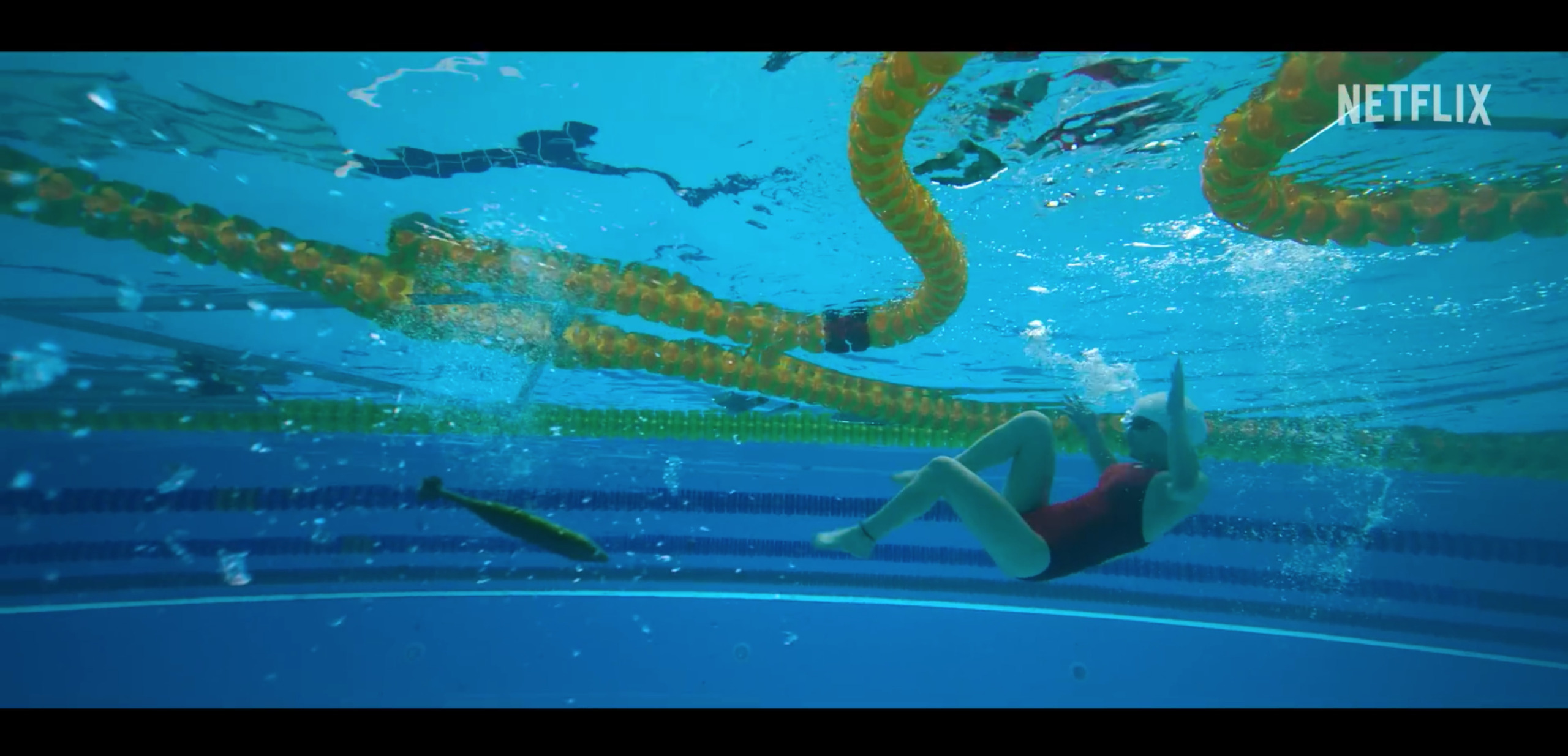
It is here that we feel a change in tone quite distinctly: The struggle, the journey, an all too familiar image of the difficult decision to leave your family in a city of rubble and go to Europe, on overcrowded boats, walking till your feet can’t anymore, running from hostile authorities through entire countries, just to get to countries like Germany, land live in cramped conditions with strangers in the timeless purgatory of waiting on papers.
Related Articles: A Life in Limbo: Between Borders | Europe’s Refugee Crisis Is a Crisis of Humanity, not Migration
This film doesn’t pull its punches in telling the refugee’s story. Lines, thrown into the narrative wind, like going 10 hours with no toilet, or how few of who begin the journey across the Mediterranean actually get to see it through.
It is here that we must address the sheer visual experience that this film provides. The colours are vivid and vibrant, every shot a painting in composition and content. The most striking visual of the film comes from the scene of the refugees’ first port of call in Europe, on the island of lesbos.
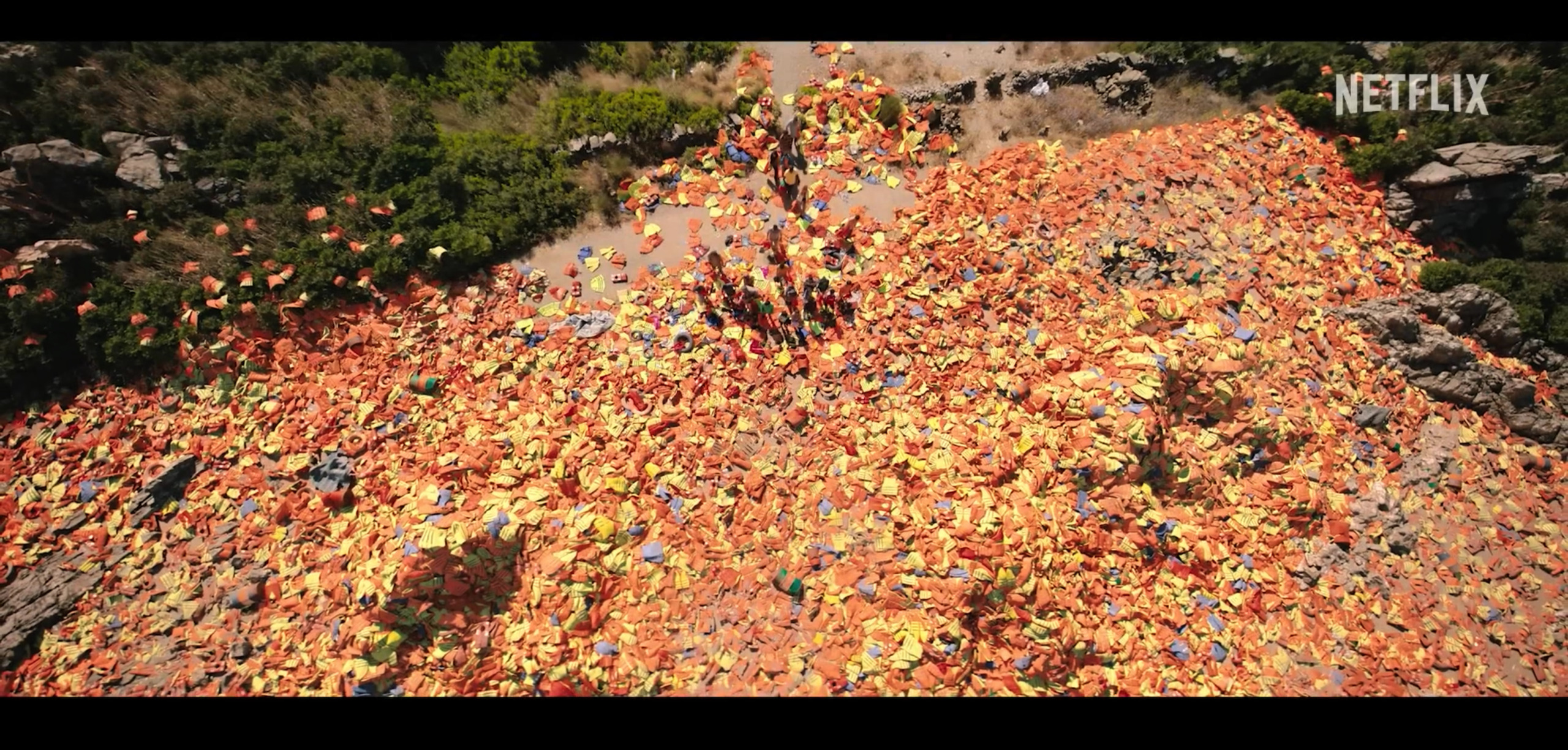
As they walk into the idyllic scenery, the camera zooms out, and pans upward to show them faced with a sea of discarded life jackets, tragically neon in their multitudes, left by those who came before, on other boats, fleeing the same fight. There is a thematic audiovisual motif, which I will let you discover the specifics of, that punctuates the vividness of joy with the baseness of enjoyment. Little things peppered throughout the story remind us of the sole ingredient of human enjoyment: humans. Most significantly, a pillow-fight as the despondent Syrians flee through Istanbul.
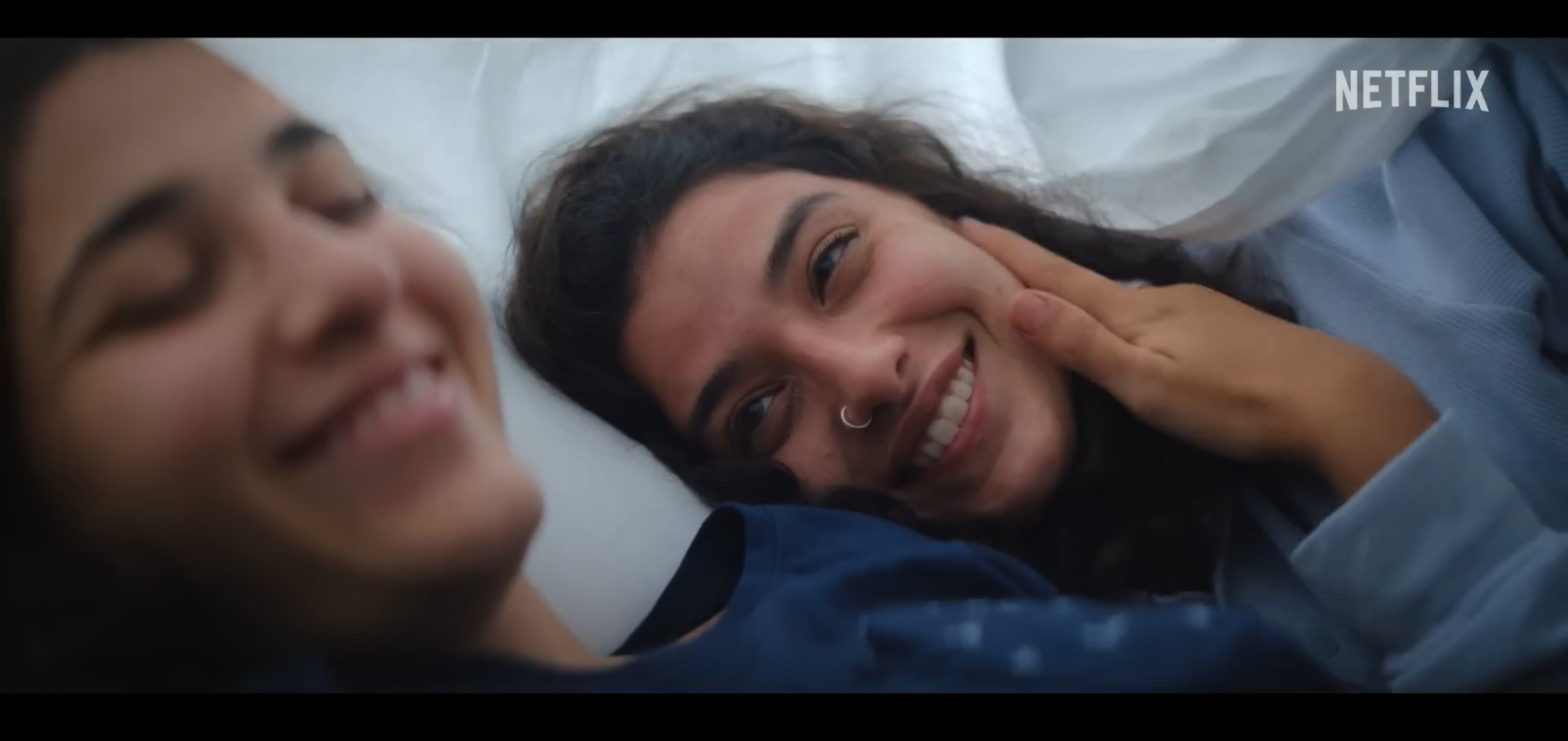
This is a true story, and needed to be handled with the most care possible. Showing Syria as a sea of sepia-tinted rubble and smoke was not an option. Also unavailable to any director possessing common sense was the Americanisation of the narrative voice. It also does matter that the protagonists were two girls at the cusp of adolescence and adulthood, raised in a context that is best described as westernised Islamic liberalism.
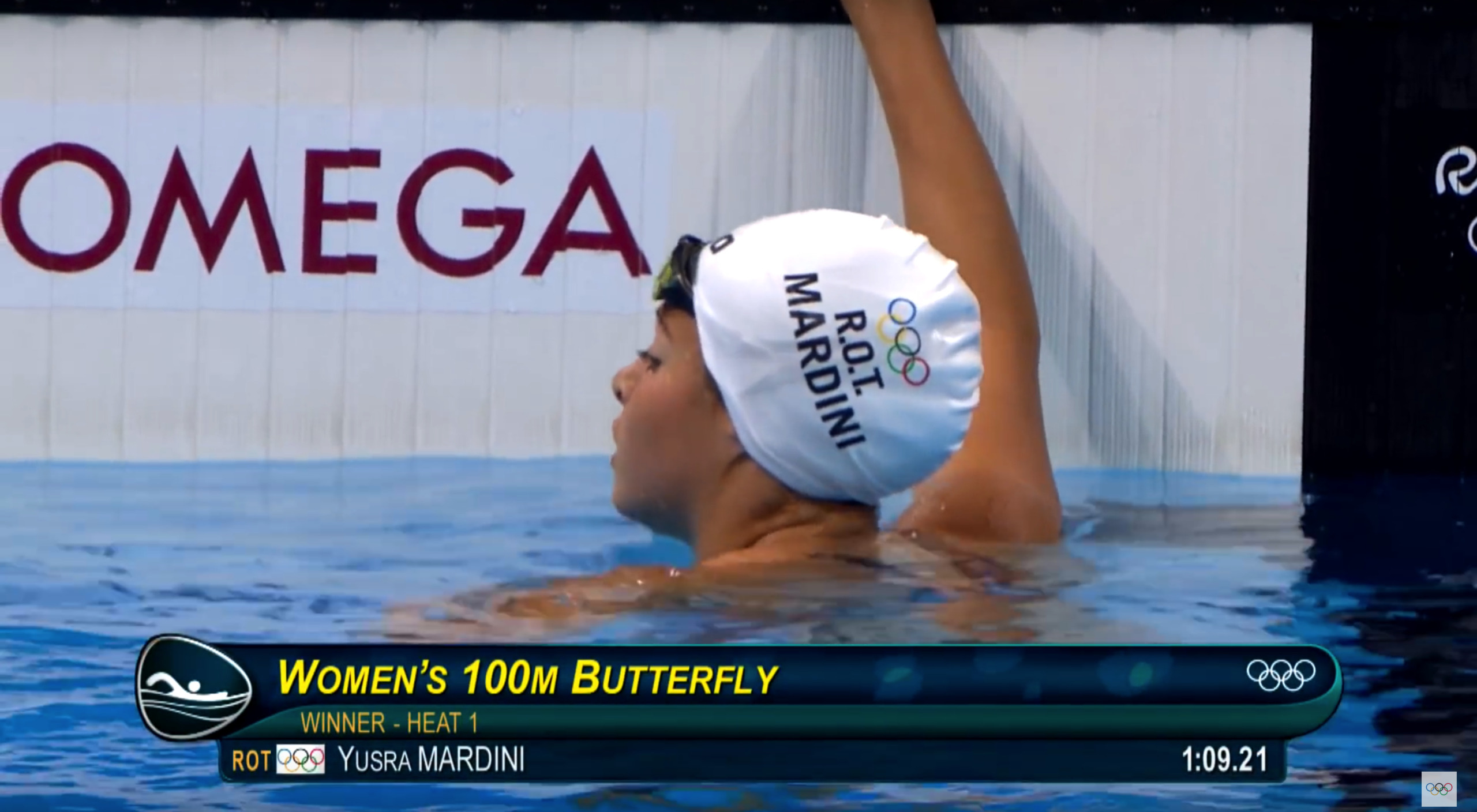
Does having a woman behind the camera fulfil these criteria all by itself? Obviously not, but it helps. The grit that kept the Mardini sisters alive is understood best by people to whom intersectionality is a necessity, not a choice. An Arab woman understands this with the least effort. An Arab woman is unafraid to weave humour and playfulness into the modern Trail of Tears. The directorship of Sally El Hosaini is arguably the tensile strength of the house of cards assembled from individual moments of real life.
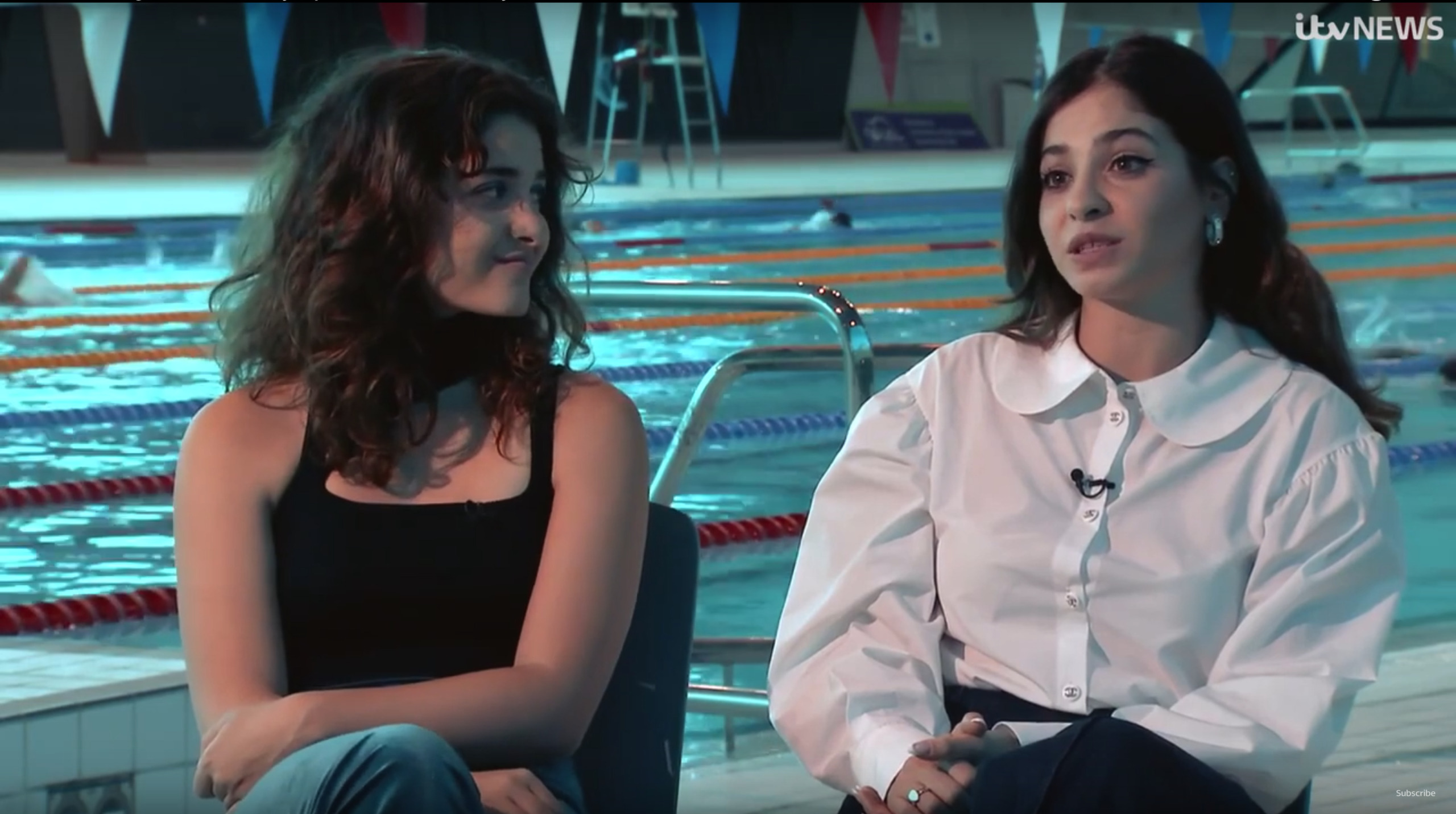
Overwhelmingly, indubitably, what “Swimmers” gets right is the humanisation of the individual refugee. The aspirations of the refugee that supersede her desire to reside in a wealthy western country, the exceptionalism of the refugee that is not qualified merely by her nationality or lack thereof, but by her purest merit. The failings of a refugee, after which she builds herself up, not despite the regressive nature of her upbringing, but spurred on by the lessons of her social and cultural background.
This is a sports movie, set against the backdrop of Syria much like Rocky was set against the Cold War. Watch this film for Syria, and its swimmers. Watch this film for sisterhood and patriotism. Watch it for whatever reason suits you best, but please do watch it.
Editor’s Note: The opinions expressed here by the authors are their own, not those of Impakter.com — In the Featured Photo: The “Swimmers” poster. Featured Photo Credit:Netflix on YouTube–.










